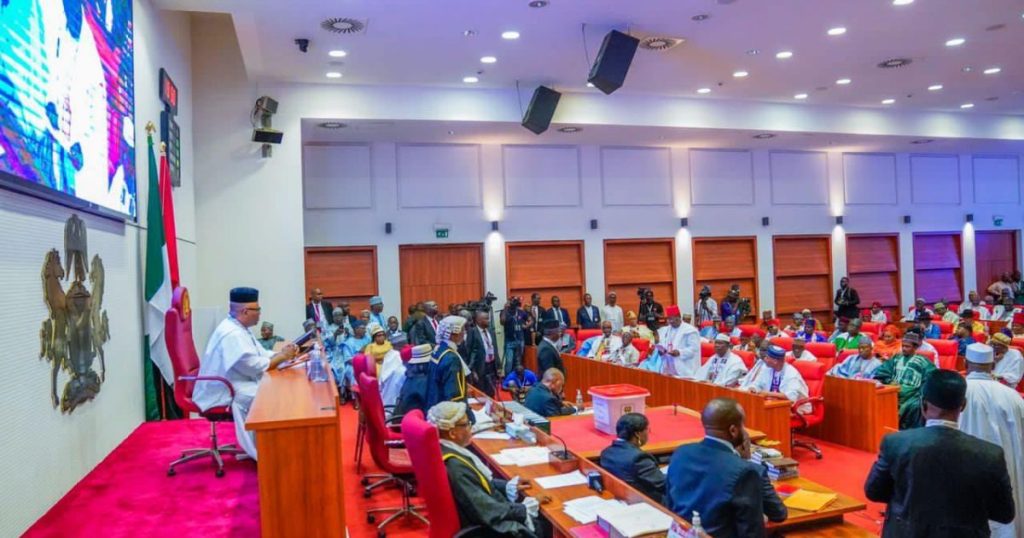Nigeria’s Senate has taken a monumental stride towards reshaping the nation’s tax landscape with the passage of four pivotal tax reform bills, a key component of President Bola Tinubu’s economic agenda. This legislative victory, achieved after meticulous deliberation and stakeholder engagement, aims to modernize the tax system, enhance revenue generation, and foster sustainable economic growth. The bills, encompassing critical areas like tax administration, dispute resolution, and revenue allocation, underwent rigorous scrutiny, including public hearings and consultations with diverse organizations, reflecting a commitment to transparency and inclusivity.
The first two bills, passed swiftly by the Senate, paved the way for the subsequent approval of the remaining two, namely the Nigeria Tax Administration Bill and the Nigeria Tax Bill. This legislative process involved detailed clause-by-clause consideration, ensuring that contentious provisions were addressed and consensus was reached among lawmakers. The Senate President, Godswill Akpabio, lauded the Senate’s dedication to modernizing the tax system, highlighting the transformative potential of the reforms. The bills’ passage marks a significant milestone in President Tinubu’s efforts to revitalize Nigeria’s economy.
Senator Sani Musa, Chairman of the Ad Hoc Committee on Tax Reform Bills, emphasized the Senate’s commitment to aligning the reforms with global best practices. He underscored the extensive review process undertaken by the Senate, including a public hearing and a retreat attended by a wide range of stakeholders. The Senate’s recommendations encompass crucial elements such as the appointment of a chairman for the Nigerian Revenue Service, the establishment of an ombudsman to resolve tax disputes, and the creation of a tax tribunal for efficient handling of tax-related matters. These measures aim to enhance transparency, accountability, and fairness within the tax system.
The Senate’s deliberations addressed key aspects of the tax regime, including value-added tax (VAT), tax collection procedures, development levies, and inheritance tax. Notably, the Senate made the decision to remove inheritance tax from the bills, acknowledging public concerns and sensitivities surrounding this particular tax instrument. Senator Musa assured Nigerians that they would reap the benefits of these reforms, emphasizing the President’s commitment to an inclusive and transparent process. He further revealed that a joint committee would be formed to reconcile any discrepancies between the Senate and House versions of the bills, ensuring a unified and coherent approach to tax reform.
The revenue generated from the reformed tax structure is earmarked for crucial national priorities. These include bolstering cybersecurity measures to combat the growing threat of cybercrime, enhancing national defense infrastructure to safeguard national security, supporting the Tertiary Education Trust Fund (TETFund) to invest in education and research, and providing assistance to military personnel engaged in peace restoration efforts across the country. This strategic allocation of resources reflects the government’s commitment to addressing critical national needs and investing in human capital and security.
The passage of these tax reform bills signifies a pivotal moment in Nigeria’s economic trajectory. By modernizing the tax system, enhancing revenue collection, and addressing key challenges, the government aims to create a more conducive environment for economic growth, investment, and job creation. The reforms are expected to contribute to fiscal stability, improve public service delivery, and ultimately enhance the well-being of Nigerian citizens. The emphasis on transparency, stakeholder engagement, and alignment with global best practices underscores the government’s commitment to building a robust and equitable tax system that fosters sustainable development and shared prosperity.


